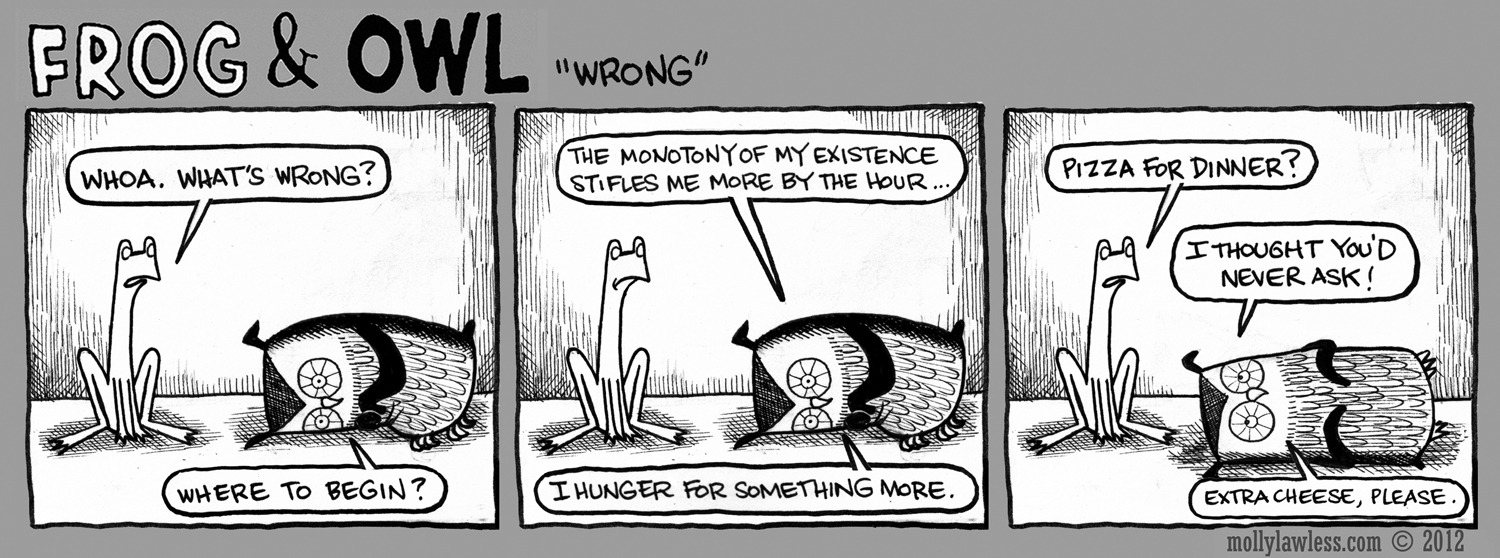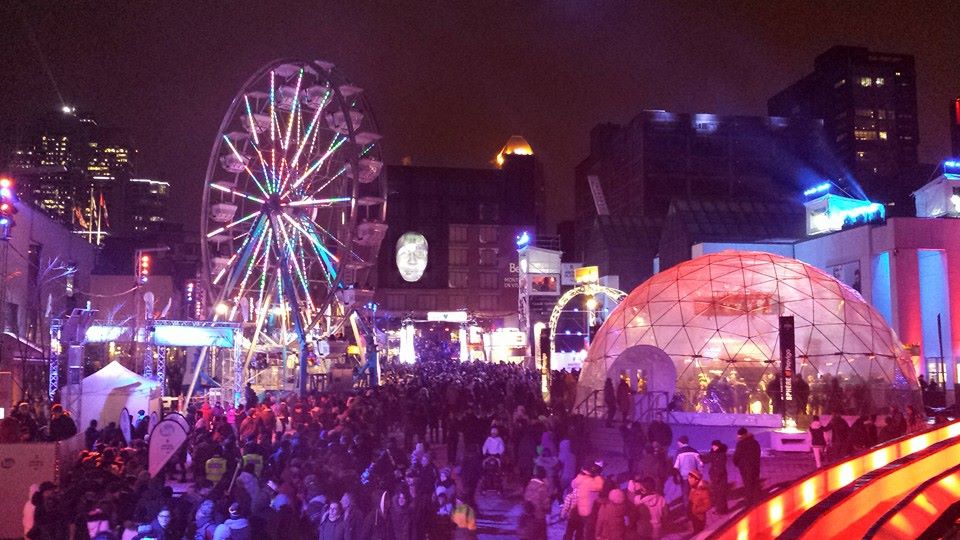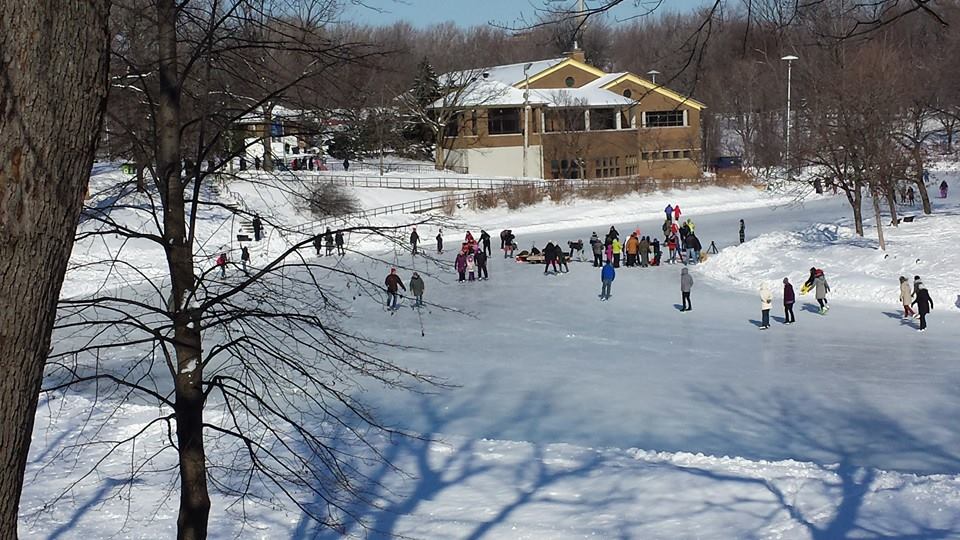I recently stumbled upon a very interesting discussion on Quora (I think someone tweeted it but I can’t remember who!) The question that sparked the discussion was:
Starting from the very beginning, what happened in the Israel/Palestine area?
In terms that a 15-year-old can understand would be most desirable. I know that the Jews and Muslims had been living in this area for a very long time before Israel became an independent country, but so far the only history about the area that I’ve gotten is the EXTREMELY bias American side which consists of the Jews always being right and the Muslims always being this evil group of terrorists. Also, why does Iran call it “Zion” and why is it used as a hate term?
The answers were all fascinating including this historical summary by Mark Allen but my favorite was an answer posted by Tim Hodges which gives one historical view right after the world war.
“I don’t think that this answers it for a 15 year (maybe), but I recently read an essay written in 1947 by King Abdullah of Jordan that explained more about the situation than I had ever understood before. I quote it now in its entirety:
“As the Arabs see the Jews” – His Majesty King Abdullah, The American Magazine, November, 1947
Summary
This fascinating essay, written by King Hussein’s grandfather King Abdullah, appeared in the United States six months before the 1948 Arab-Israeli War. In the article, King Abdullah disputes the mistaken view that Arab opposition to Zionism (and later the state of Israel) is because of longstanding religious or ethnic hatred. He notes that Jews and Muslims enjoyed a long history of peaceful coexistence in the Middle East, and that Jews have historically suffered far more at the hands of Christian Europe. Pointing to the tragedy of the holocaust that Jews suffered during World War II, the monarch asks why America and Europe are refusing to accept more than a token handful of Jewish immigrants and refugees. It is unfair, he argues, to make Palestine, which is innocent of anti-Semitism, pay for the crimes of Europe. King Abdullah also asks how Jews can claim a historic right to Palestine, when Arabs have been the overwhelming majority there for nearly 1300 uninterrupted years? The essay ends on an ominous note, warning of dire consequences if a peaceful solution cannot be found to protect the rights of the indigenous Arabs of Palestine.
“As the Arabs see the Jews” – His Majesty King Abdullah, The American Magazine, November, 1947
I am especially delighted to address an American audience, for the tragic problem of Palestine will never be solved without American understanding, American sympathy, American support.
So many billions of words have been written about Palestine—perhaps more than on any other subject in history—that I hesitate to add to them. Yet I am compelled to do so, for I am reluctantly convinced that the world in general, and America in particular, knows almost nothing of the true case for the Arabs
We Arabs follow, perhaps far more than you think, the press of America. We are frankly disturbed to find that for every word printed on the Arab side, a thousand are printed on the Zionist side.
There are many reasons for this. You have many millions of Jewish citizens interested in this question. They are highly vocal and wise in the ways of publicity. There are few Arab citizens in America, and we are as yet unskilled in the technique of modern propaganda.
The results have been alarming for us. In your press we see a horrible caricature and are told it is our true portrait. In all justice, we cannot let this pass by default.
Our case is quite simple: For nearly 2,000 years Palestine has been almost 100 percent Arab. It is still preponderantly Arab today, in spite of enormous Jewish immigration. But if this immigration continues we shall soon be outnumbered—a minority in our home.
Palestine is a small and very poor country, about the size of your state of Vermont. Its Arab population is only about 1,200,000. Already we have had forced on us, against our will, some 600,000 Zionist Jews. We are threatened with many hundreds of thousands more.
Our position is so simple and natural that we are amazed it should even be questioned. It is exactly the same position you in America take in regard to the unhappy European Jews. You are sorry for them, but you do not want them in your country.
We do not want them in ours, either. Not because they are Jews, but because they are foreigners. We would not want hundreds of thousands of foreigners in our country, be they Englishmen or Norwegians or Brazilians or whatever.
Think for a moment: In the last 25 years we have had one third of our entire population forced upon us. In America that would be the equivalent of 45,000,000 complete strangers admitted to your country, over your violent protest, since 1921. How would you have reacted to that?
Because of our perfectly natural dislike of being overwhelmed in our own homeland, we are called blind nationalists and heartless anti-Semites. This charge would be ludicrous were it not so dangerous.
No people on earth have been less “anti-Semitic” than the Arabs. The persecution of the Jews has been confined almost entirely to the Christian nations of the West. Jews, themselves, will admit that never since the Great Dispersion did Jews develop so freely and reach such importance as in Spain when it was an Arab possession. With very minor exceptions, Jews have lived for many centuries in the Middle East, in complete peace and friendliness with their Arab neighbours.
Damascus, Baghdad, Beirut and other Arab centres have always contained large and prosperous Jewish colonies. Until the Zionist invasion of Palestine began, these Jews received the most generous treatment—far, far better than in Christian Europe. Now, unhappily, for the first time in history, these Jews are beginning to feel the effects of Arab resistance to the Zionist assault. Most of them are as anxious as Arabs to stop it. Most of these Jews who have found happy homes among us resent, as we do, the coming of these strangers.
I was puzzled for a long time about the odd belief which apparently persists in America that Palestine has somehow “always been a Jewish land.” Recently an American I talked to cleared up this mystery. He pointed out that the only things most Americans know about Palestine are what they read in the Bible. It was a Jewish land in those days, they reason, and they assume it has always remained so.
Nothing could be farther from the truth. It is absurd to reach so far back into the mists of history to argue about who should have Palestine today, and I apologise for it. Yet the Jews do this, and I must reply to their “historic claim.” I wonder if the world has ever seen a stranger sight than a group of people seriously pretending to claim a land because their ancestors lived there some 2,000 years ago!
If you suggest that I am biased, I invite you to read any sound history of the period and verify the facts.
Such fragmentary records as we have indicate that the Jews were wandering nomads from Iraq who moved to southern Turkey, came south to Palestine, stayed there a short time, and then passed to Egypt, where they remained about 400 years. About 1300 BC (according to your calendar) they left Egypt and gradually conquered most—but not all—of the inhabitants of Palestine.
It is significant that the Philistines—not the Jews—gave their name to the country: “Palestine” is merely the Greek form of “Philistia.”
Only once, during the empire of David and Solomon, did the Jews ever control nearly—but not all—the land which is today Palestine. This empire lasted only 70 years, ending in 926 BC. Only 250 years later the Kingdom of Judah had shrunk to a small province around Jerusalem, barely a quarter of modern Palestine.
In 63 BC the Jews were conquered by Roman Pompey, and never again had even the vestige of independence. The Roman Emperor Hadrian finally wiped them out about 135 AD. He utterly destroyed Jerusalem, rebuilt under another name, and for hundreds of years no Jew was permitted to enter it. A handful of Jews remained in Palestine but the vast majority were killed or scattered to other countries, in the Diaspora, or the Great Dispersion. From that time Palestine ceased to be a Jewish country, in any conceivable sense.
This was 1,815 years ago, and yet the Jews solemnly pretend they still own Palestine! If such fantasy were allowed, how the map of the world would dance about!
Italians might claim England, which the Romans held so long. England might claim France, “homeland” of the conquering Normans. And the French Normans might claim Norway, where their ancestors originated. And incidentally, we Arabs might claim Spain, which we held for 700 years.
Many Mexicans might claim Spain, “homeland” of their forefathers. They might even claim Texas, which was Mexican until 100 years ago. And suppose the American Indians claimed the “homeland” of which they were the sole, native, and ancient occupants until only some 450 years ago!
I am not being facetious. All these claims are just as valid—or just as fantastic—as the Jewish “historic connection” with Palestine. Most are more valid.
In any event, the great Moslem expansion about 650 AD finally settled things. It dominated Palestine completely. From that day on, Palestine was solidly Arabic in population, language, and religion. When British armies entered the country during the last war, they found 500,000 Arabs and only 65,000 Jews.
If solid, uninterrupted Arab occupation for nearly 1,300 years does not make a country “Arab”, what does?
The Jews say, and rightly, that Palestine is the home of their religion. It is likewise the birthplace of Christianity, but would any Christian nation claim it on that account? In passing, let me say that the Christian Arabs—and there are many hundreds of thousands of them in the Arab World—are in absolute agreement with all other Arabs in opposing the Zionist invasion of Palestine.
May I also point out that Jerusalem is, after Mecca and Medina, the holiest place in Islam. In fact, in the early days of our religion, Moslems prayed toward Jerusalem instead of Mecca.
The Jewish “religious claim” to Palestine is as absurd as the “historic claim.” The Holy Places, sacred to three great religions, must be open to all, the monopoly of none. Let us not confuse religion and politics.
We are told that we are inhumane and heartless because do not accept with open arms the perhaps 200,000 Jews in Europe who suffered so frightfully under Nazi cruelty, and who even now—almost three years after war’s end—still languish in cold, depressing camps.
Let me underline several facts. The unimaginable persecution of the Jews was not done by the Arabs: it was done by a Christian nation in the West. The war which ruined Europe and made it almost impossible for these Jews to rehabilitate themselves was fought by the Christian nations of the West. The rich and empty portions of the earth belong, not to the Arabs, but to the Christian nations of the West.
And yet, to ease their consciences, these Christian nations of the West are asking Palestine—a poor and tiny Moslem country of the East—to accept the entire burden. “We have hurt these people terribly,” cries the West to the East. “Won’t you please take care of them for us?”
We find neither logic nor justice in this. Are we therefore “cruel and heartless nationalists”?
We are a generous people: we are proud that “Arab hospitality” is a phrase famous throughout the world. We are a humane people: no one was shocked more than we by the Hitlerite terror. No one pities the present plight of the desperate European Jews more than we.
But we say that Palestine has already sheltered 600,000 refugees. We believe that is enough to expect of us—even too much. We believe it is now the turn of the rest of the world to accept some of them.
I will be entirely frank with you. There is one thing the Arab world simply cannot understand. Of all the nations of the earth, America is most insistent that something be done for these suffering Jews of Europe. This feeling does credit to the humanity for which America is famous, and to that glorious inscription on your Statue of Liberty.
And yet this same America—the richest, greatest, most powerful nation the world has ever known—refuses to accept more than a token handful of these same Jews herself!
I hope you will not think I am being bitter about this. I have tried hard to understand that mysterious paradox, and I confess I cannot. Nor can any other Arab.
Perhaps you have been informed that “the Jews in Europe want to go to no other place except Palestine.”
This myth is one of the greatest propaganda triumphs of the Jewish Agency for Palestine, the organisation which promotes with fanatic zeal the emigration to Palestine. It is a subtle half-truth, thus doubly dangerous.
The astounding truth is that nobody on earth really knows where these unfortunate Jews really want to go!
You would think that in so grave a problem, the American, British, and other authorities responsible for the European Jews would have made a very careful survey, probably by vote, to find out where each Jew actually wants to go. Amazingly enough this has never been done! The Jewish Agency has prevented it.
Some time ago the American Military Governor in Germany was asked at a press conference how he was so certain that all Jews there wanted to go to Palestine. His answer was simple: “My Jewish advisors tell me so.” He admitted no poll had ever been made. Preparations were indeed begun for one, but the Jewish Agency stepped in to stop it.
The truth is that the Jews in German camps are now subjected to a Zionist pressure campaign which learned much from the Nazi terror. It is dangerous for a Jew to say that he would rather go to some other country, not Palestine. Such dissenters have been severely beaten, and worse.
Not long ago, in Palestine, nearly 1,000 Austrian Jews informed the international refugee organisation that they would like to go back to Austria, and plans were made to repatriate them.
The Jewish Agency heard of this, and exerted enough political pressure to stop it. It would be bad propaganda for Zionism if Jews began leaving Palestine. The nearly 1,000 Austrian are still there, against their will.
The fact is that most of the European Jews are Western in culture and outlook, entirely urban in experience and habits. They cannot really have their hearts set on becoming pioneers in the barren, arid, cramped land which is Palestine.
One thing, however, is undoubtedly true. As matters stand now, most refugee Jews in Europe would, indeed, vote for Palestine, simply because they know no other country will have them.
If you or I were given a choice between a near-prison camp for the rest of our lives—or Palestine—we would both choose Palestine, too.
But open up any other alternative to them—give them any other choice, and see what happens!
No poll, however, will be worth anything unless the nations of the earth are willing to open their doors—just a little—to the Jews. In other words, if in such a poll a Jew says he wants to go to Sweden, Sweden must be willing to accept him. If he votes for America, you must let him come in.
Any other kind of poll would be a farce. For the desperate Jew, this is no idle testing of opinion: this is a grave matter of life or death. Unless he is absolutely sure that his vote means something, he will always vote for Palestine, so as not to risk his bird in the hand for one in the bush.
In any event, Palestine can accept no more. The 65,000 Jews in Palestine in 1918 have jumped to 600,000 today. We Arabs have increased, too, but not by immigration. The Jews were then a mere 11 per cent of our population. Today they are one third of it.
The rate of increase has been terrifying. In a few more years—unless stopped now—it will overwhelm us, and we shall be an important minority in our own home.
Surely the rest of the wide world is rich enough and generous enough to find a place for 200,000 Jews—about one third the number that tiny, poor Palestine has already sheltered. For the rest of the world, it is hardly a drop in the bucket. For us it means national suicide.
We are sometimes told that since the Jews came to Palestine, the Arab standard of living has improved. This is a most complicated question. But let us even assume, for the argument, that it is true. We would rather be a bit poorer, and masters of our own home. Is this unnatural?
The sorry story of the so-called “Balfour Declaration,” which started Zionist immigration into Palestine, is too complicated to repeat here in detail. It is grounded in broken promises to the Arabs—promises made in cold print which admit no denying.
We utterly deny its validity. We utterly deny the right of Great Britain to give away Arab land for a “national home” for an entirely foreign people.
Even the League of Nations sanction does not alter this. At the time, not a single Arab state was a member of the League. We were not allowed to say a word in our own defense.
I must point out, again in friendly frankness, that America was nearly as responsible as Britain for this Balfour Declaration. President Wilson approved it before it was issued, and the American Congress adopted it word for word in a joint resolution on 30th June, 1922.
In the 1920s, Arabs were annoyed and insulted by Zionist immigration, but not alarmed by it. It was steady, but fairly small, as even the Zionist founders thought it would remain. Indeed for some years, more Jews left Palestine than entered it—in 1927 almost twice as many.
But two new factors, entirely unforeseen by Britain or the League or America or the most fervent Zionist, arose in the early thirties to raise the immigration to undreamed heights. One was the World Depression; the second the rise of Hitler.
In 1932, the year before Hitler came to power, only 9,500 Jews came to Palestine. We did not welcome them, but we were not afraid that, at that rate, our solid Arab majority would ever be in danger.
But the next year—the year of Hitler—it jumped to 30,000! In 1934 it was 42,000! In 1935 it reached 61,000!
It was no longer the orderly arrival of idealist Zionists. Rather, all Europe was pouring its frightened Jews upon us. Then, at last, we, too, became frightened. We knew that unless this enormous influx stopped, we were, as Arabs, doomed in our Palestine homeland. And we have not changed our minds.
I have the impression that many Americans believe the trouble in Palestine is very remote from them, that America had little to do with it, and that your only interest now is that of a humane bystander.
I believe that you do not realise how directly you are, as a nation, responsible in general for the whole Zionist move and specifically for the present terrorism. I call this to your attention because I am certain that if you realise your responsibility you will act fairly to admit it and assume it.
Quite aside from official American support for the “National Home” of the Balfour Declaration, the Zionist settlements in Palestine would have been almost impossible, on anything like the current scale, without American money. This was contributed by American Jewry in an idealistic effort to help their fellows.
The motive was worthy: the result were disastrous. The contributions were by private individuals, but they were almost entirely Americans, and, as a nation, only America can answer for it.
The present catastrophe may be laid almost entirely at your door. Your government, almost alone in the world, is insisting on the immediate admission of 100,000 more Jews into Palestine—to be followed by countless additional ones. This will have the most frightful consequences in bloody chaos beyond anything ever hinted at in Palestine before.
It is your press and political leadership, almost alone in the world, who press this demand. It is almost entirely American money which hires or buys the “refugee ships” that steam illegally toward Palestine: American money which pays their crews. The illegal immigration from Europe is arranged by the Jewish Agency, supported almost entirely by American funds. It is American dollars which support the terrorists, which buy the bullets and pistols that kill British soldiers—your allies—and Arab citizens—your friends.
We in the Arab world were stunned to hear that you permit open advertisements in newspapers asking for money to finance these terrorists, to arm them openly and deliberately for murder. We could not believe this could really happen in the modern world. Now we must believe it: we have seen the advertisements with our own eyes.
I point out these things because nothing less than complete frankness will be of use. The crisis is too stark for mere polite vagueness which means nothing.
I have the most complete confidence in the fair-mindedness and generosity of the American public. We Arabs ask no favours. We ask only that you know the full truth, not half of it. We ask only that when you judge the Palestine question, you put yourselves in our place.
What would your answer be if some outside agency told you that you must accept in America many millions of utter strangers in your midst—enough to dominate your country—merely because they insisted on going to America, and because their forefathers had once lived there some 2,000 years ago?
Our answer is the same.
And what would be your action if, in spite of your refusal, this outside agency began forcing them on you?
Ours will be the same.”



 Love in half measures
Love in half measures





















